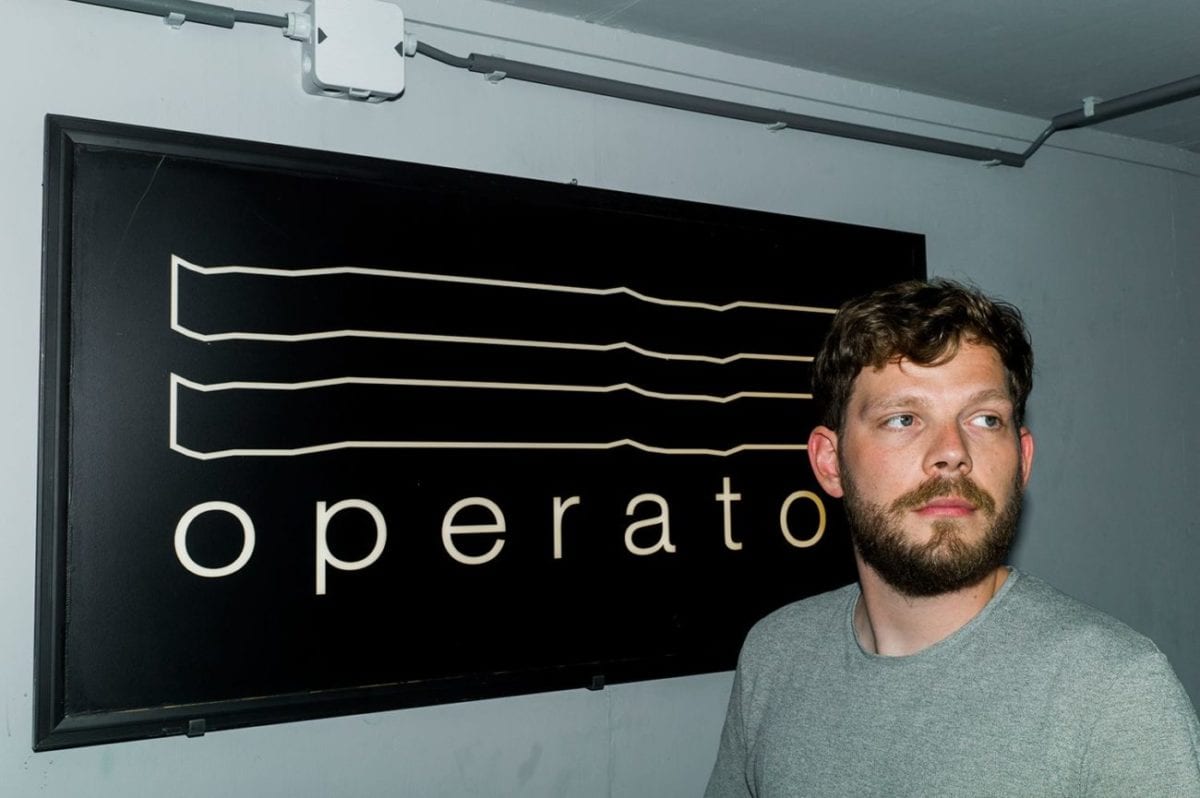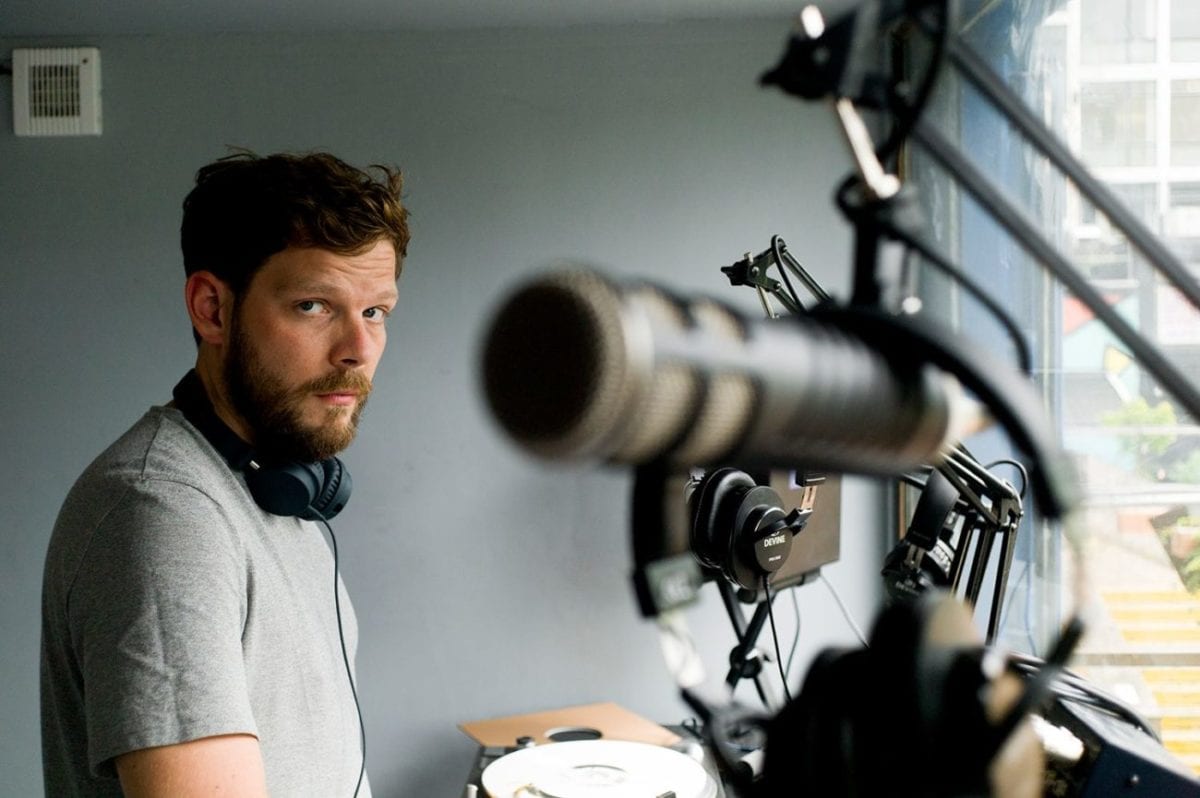
An architect of Rotterdam’s return to the forefront of the underground electronic sphere over the last few years, Patrick Marsman has been steering his multiple ships with ceaseless ardor and utter devotion – boosting the whole local scene in his wake.
If his labels Pinkman and Charlois have rapidly established as some of the most consistent platforms for acid techno, retro-futuristic house and driving electro grooves – garnering choice slabs from Antenna, Tim J Fairplay, Drvg Cvltvre, Alessandro Adriani, Art Crime, Black Merlin, DJ Overdose, Dollkraut and many more, Marsman has also displayed matchless skills when it comes to harnessing the pulsating culture around him and bringing it to fruition through productive schemes, the latest example of this being the newborn Rotterdam-based Operator radio station.
Already geared towards the beginning of the autumn’s term and the next couple Pinkman releases courtesy of Roberto Auser and Retrograde Youth, scheduled to drop in September, Patrick answered a few of our questions and speaks about his hometown, the roots to the Operator project and further plans for the future. By way of special audio treat we’re also glad to share the Giallo-Italo-friendly ‘Inner Voices‘, taken from Retrograde Youth’s ‘We’re Not Humans Anymore‘ EP.
Interview by Baptiste Girou
"I'm always looking for artists who are open for longtime commitment, it's like a mutual investment. If an artist is not interested in that, then I guess Pinkman is not the place for them."
Pinkman has been a fav of ours for a number of years now. Please tell us more about the genesis of the label? You mentioned in a previous interview that you just had tracks by Drvg Cvltvre and Roberto Auser that you wanted pressed to wax. When did you realise Pinkman was made to last?
Directly after the first two releases. I just enjoy the whole creative process of working together with an artist towards a release. Nothing beats that feeling when the records are finally there and you hold them in your hands for the first time after all the effort that was put into it. I guess it’s kind of addicting. So I just knew right away I wanted to continue with the label. It was around that time that people started to contact me to see if I wanted to work with them on a release. I was also actively looking for music and artists I wanted to work with.
That’s how the next couple of releases came about. What’s your feeling when you look at all the accomplishments made? Pretty neat for a label that had no real “concept” behind it!
It doesn’t work for me to think too much about concepts and all, just follow your gut and do it and it will evolve naturally. Otherwise I’m probably gonna overanalyze everything, and I end up doing nothing. I mean, I do have a vision when it comes to the direction I want to take the labels to and I have a pretty outspoken taste, but I just don’t think that conceptualizing everything beforehand is how I want to work.
And yes, after 4, 5 years of running the labels I’m happy with where we are now. I mean, 44 releases in a relatively short period of time, that’s something I can be proud of I think. But I couldn’t have done this without the artists. They also deserve the credits for it. I’ve learned that it’s important for me that artists are excited to release on the label, and are eager to be part of it. I’m always looking for artists who are open for longtime commitment, it’s like a mutual investment. If an artist is not interested in that, then I guess Pinkman is not the place for them.
What’s coming next on the label? Any new releases you’d like to tell us about?
I’ve recently announced upcoming records from Retrograde Youth and Roberto Auser. These will come out after our “summer break”, early September. The same month I will put out a cassette for the first time on Pinkman. An exciting 6-track debut release from TYVYT_IYTYI, which includes a Mick Wills cut.
Later this year Scientific Dreamz Of U, Kris Baha and Mitchell Goor will also have their debut on the label, and the Digital Tsunami boss Ernestas Sadau will drop his first ever release. Bionda E Lupo will be the next one on Charlois, which is a disco/wave/synthpop project from Sneaker and Sane. People are waiting for this one, but unfortunately it has some delay due to pressing issues. I think it will be out in October now.
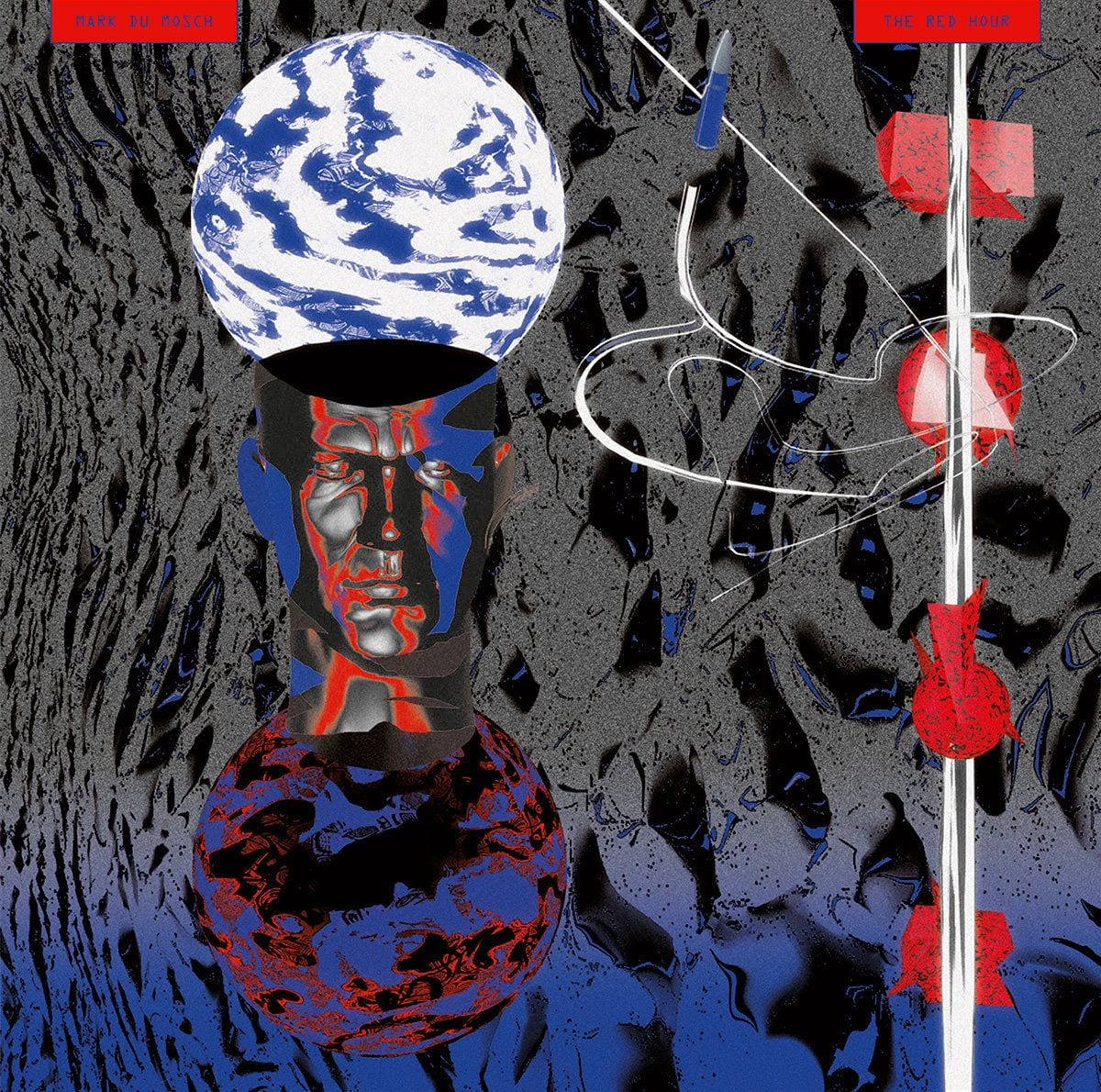
"It intrigued me that through the means of communication [...] you can create a sort of alternative universe which has little to do with how things are in reality."
The blue colour has become a trademark and recurring element in Pinkman’s designs, which inevitably recalls of Yves Klein’s own copyrighted shade. What brought you to make it a defining trait?
This was the idea of Sasha Renkas, aka Antenna. He designed the logo and did the artwork of Pinkman #3 to #17. At first I was a bit skeptic about using the blue as the main trademark, but I trusted him. After a few releases it started to grow on me, and I really began to appreciate it. Nowadays Sander Molenaar is working for me as a graphic designer. He already was my main designer for Charlois. When he started to work for Pinkman he just continued where Sasha left off and gave his own twist to it.
You set up Charlois over two years ago, a label that boasts a dozen releases by Timothy J. Fairplay, Dollkraut, Alessandro Parisi, DJ Overdose and more. What distinguishes it from the Pinkman mother ship? And how do you know if a track fits this or that label’s roadmap?
It’s all about the feeling the music gives me. When I hear something I just instantly know if it’s going to be on Pinkman, the Broken Dreams series or on Charlois. I don’t process things according to genres too much, just moods and emotions. People will probably understand it when they listen to the whole catalogue of the labels. Or maybe they have their own interpretation of it, which I also happen to hear quite a lot. That’s all fine, it’s actually pretty interesting to hear other people’s take on the different channels and how they perceive it.
The imprint takes its name from the Charlois district in Rotterdam, where you live. How do your surroundings inflect the way you approach music?
I saw a documentary once which brushed a picture of Charlois, the neighbourhood I was living in until recently, as one of the most dangerous and deprived areas of Europe. That was crazy to me because I had never felt unsafe or anything while living there. I mean it’s kind of a working class neighborhood but I actually appreciated the different cultures and people.
It intrigued me that through the means of communication, in this case the portrayal of Charlois in this documentary, you can create a sort of alternative universe which has little to do with how things are in reality. This was an inspiration for me to create a new channel for the music I wanted to release but didn’t really fit on Pinkman at that time. I just felt I wanted to create something new with different music and different artwork and communication.
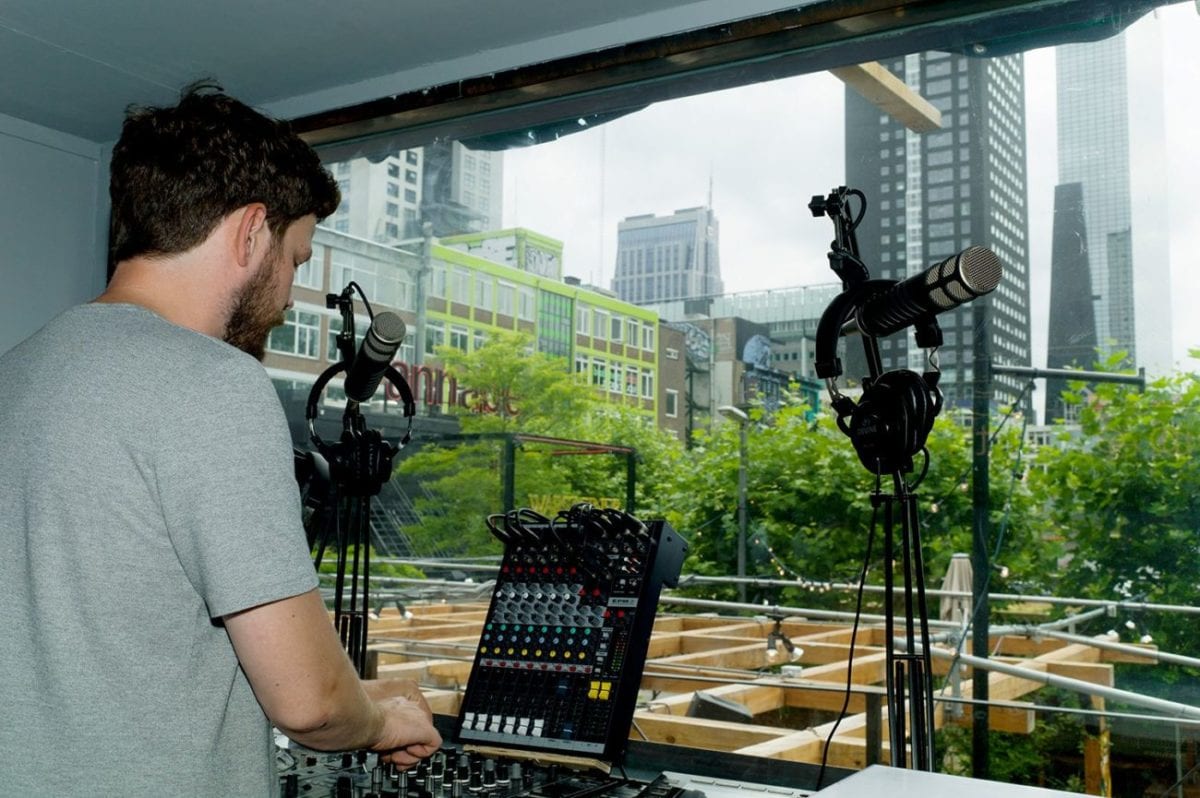
"Don't talk about it too much, just do it. That's also how I run my labels."
You’ve been one of the architects of Rotterdam’s return to the forefront of electronic music in recent years. What makes the city’s scene so special in your opinion?
When I moved to the city 6 years ago, it was just a matter of the right time and place. Most of the clubs in Rotterdam had closed the years before and the whole scene was scattered. By the time I came here there was a real sense of the “do it yourself” kind of attitude since there wasn’t really any cool places to hang out at anymore.
I felt a certain energy in the city, which also reflected on me in a positive way. People were rooting for new initiatives. As a newcomer it could have been difficult to blend in, but it didn’t happen at all as people were open and genuinely interested in what I was doing. Another thing I like about Rotterdam is that people have a real no-nonsense attitude over here. Don’t talk about it too much, just do it. That’s also how I run my labels.
How’s the emulation there? What are the nerve centres in Rotterdam?
The situation changed a little in the last few years in the sense that there are more clubs now and there’s more stuff going on. But at the same time I guess it’s not really an issue because every club has its own identity in the way they program and the audience they serve.
It’s not the same as in Amsterdam for instance were there are so many clubs and crews doing like-minded things. It’s harder to compete over there but then again there are loads of tourists roaming around the city at night looking to party. Overall I don’t think competitiveness is really a thing here, it wasn’t then and it still isn’t.
How did you come round to DJing? What’s been the trigger?
I can’t say there was a moment when I decided to be a DJ. I just rolled into it I guess. I started buying records for the purpose of DJing probably 10 years ago, just for the fun of it, making mixtapes in the attic. A bit later I began to play together with some friends of mine at relatively small parties in the east of the Netherlands, where I grew up.
During that time I began listening to Intergalactic FM, and I eventually started to do radio shows for the station. This was significant in expanding my musical preferences and growing as a DJ. I wanted to be closer to an area where I could connect with more people with mutual music interests, so I moved to Rotterdam. Soon after I started Pinkman and began DJing under my own name.
If there was a turning point for me when it comes to DJing, it was when I decided to fully focus on music and quit my day job back in 2015. Before that music had always been a side project for me, although I knew it was actually the main thing I wanted to do. It took some guts to make that decision and it wasn’t always easy, but I haven’t regretted one second of it.
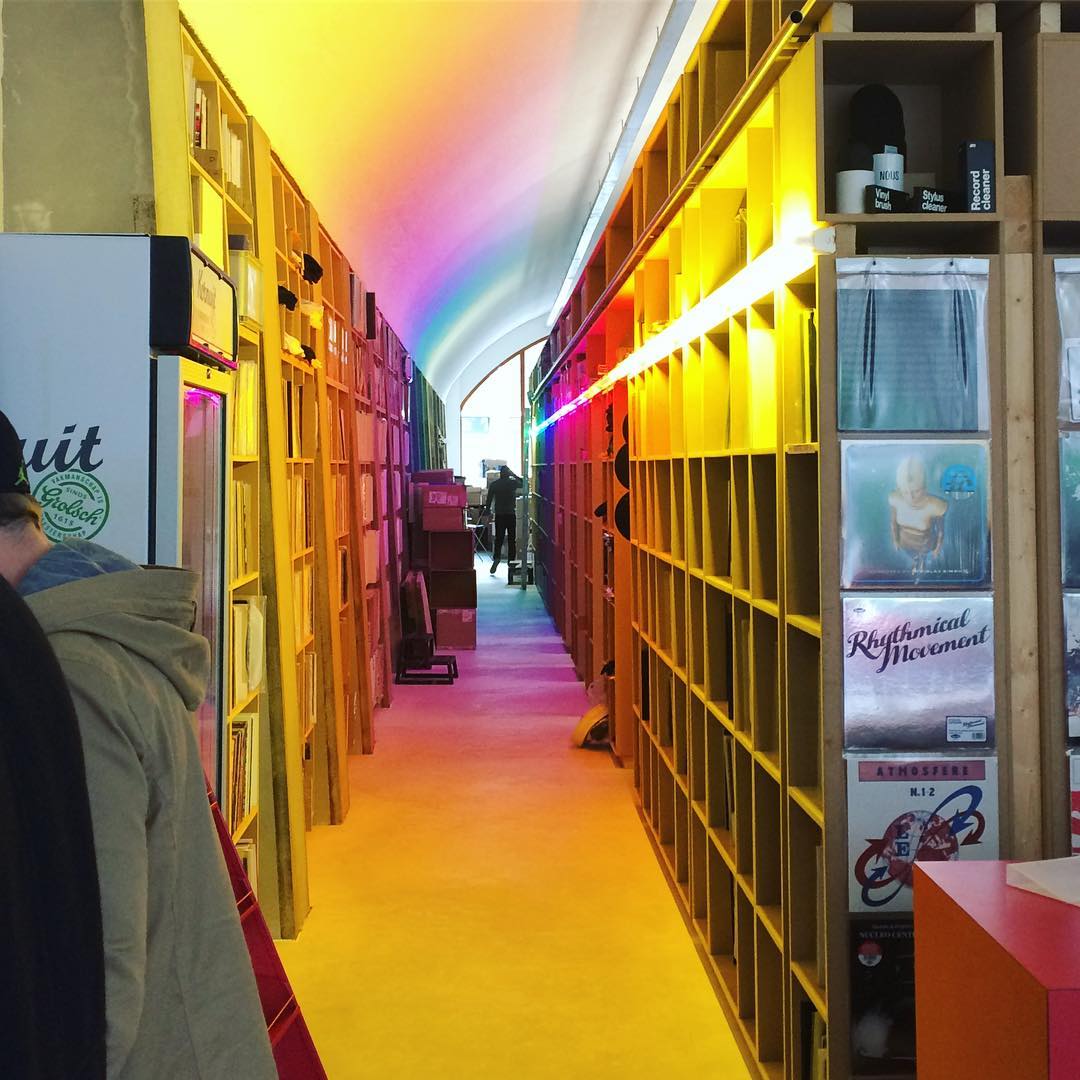
"For me this is an important part of the station, connecting people from different music scenes and promoting diversity in the city."
What is the last record store you visited and what did you bag there?
I probably visit my local store Clone Records a few times a month. I went there just last week with Daniele Cosmo from Lux Rec who was staying at my place for the weekend. I bought a new record by Villa Abo, released on Butter Sessions. I’m really into the A2 and B2 of this EP.
I’ve also bought the first official vinyl edition of the Ghost In The Shell soundtrack, and the reissue of Techno Bert on Mannequin Records. And I bagged this third EP by RX-101, which is pressed at 45, but works better for me to play at 33. There’s an interesting story behind these releases. It’s a Dutch guy who recorded loads of tracks 15 years ago on DAT tapes, never did anything with it, but he’s finally releasing his stuff on a Canadian label after he uploaded these recordings on Soundcloud last year.
I also got the Turning Circuits release on Lux Rec from Daniele for my birthday, which I’m pretty happy about because I really like this record but I slept on it when it came out.
You’ve just co-founded a new online radio, Operator. How was this project born?
I was walking around with the idea of setting up a radio station in Rotterdam for a while. It seemed like the next logical step, since there wasn’t anything like that over here in Rotterdam. Which is a shame because we have some real talent in this city. I heard that Jeff Solo, Jorn de Vries and Osman Bas were already busy setting something up, so I reached out to them and soon after I joined them together with Ofra Beenen.
Two essential things for the realization of the radio station were the location and the website. The Biergarten donated a container to us, which stands on top of two containers at the terrace, to build the radio station in. Mangrove, a web development company built the website operator-radio.com, which they also donated to us. So the biggest obstacles were already covered before we started.
Right before the launch of the station we organized a fundraiser party at the club BAR, which are the neighbours of Biergarten. With the money we raised and our own investments, we bought the essential equipment for the studio. On the 20th of April we officially launched the radio station.
When you first introduced me to the project, you mentioned you want it to not only be an online structure to share music but also a place where artists can meet and connect… How is it shaping up?
Great. A lot of DJs bring friends when they are doing a show, and most of the time they just hang around the container after the broadcast. So there’s a lot of social interaction going on, meeting new people who are also into music. New ideas and collaborations are born this way.
For me this is an important part of the station, connecting people from different music scenes and promoting diversity in the city. Last weekend for example, we did this event in cooperation with the Kunsthal, an established museum here in Rotterdam.
In one room people could visit the exposition “Robert Mappethorpe, a perfectionist“, and listen to interviews which we streamed live via the Operator Facebook page. In another area of the museum we did a party, which was also broadcast live on our website. Throughout the evening I saw a lot of familiar faces that also visited the container the last two months, people I didn’t know before Operator started.
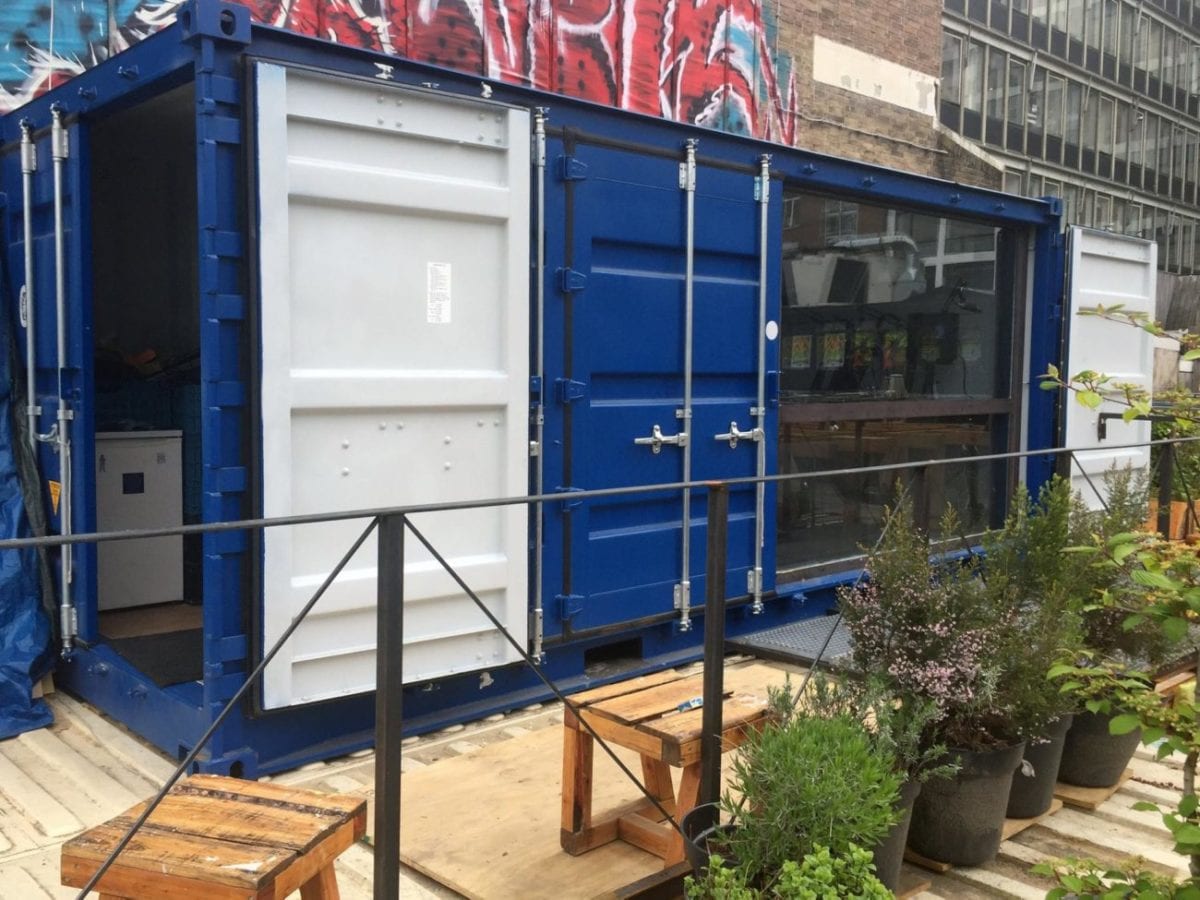
What’s the next step for the station?
We’re currently broadcasting live 4 days a week, from Wednesday to Saturday. At some point we are going to add another day to the schedule. We received many requests for live performances inside the container, which we couldn’t make happen before because we didn’t have the funds to buy the necessary equipment.
That changed recently when we won a contest where creative startups could pitch their idea and be rewarded with a thousand euros. Now we’re able to invest in an extension of the DJ booth, a video mixer and an extra camera to stream live performances. We’re also going to launch a mobile Operator app soon, which is being tested right now.
How’s your summer schedule looking right now?
I’m currently working on the Pinkman 5 years anniversary releases that will see the light of day next year. On the 12th of August we are hosting a Pinkman and Operator stage at the Blijdorp Festival in Rotterdam.
The week after that I’ll travel to Berlin to play at a Mannequin Records Night at Saule, the new room at Berghain. Really looking forward to that one. After the gig I’ll go straight to Croatia and get some time off before I play at the Dekmantel Selectors Festival. Then after the Festival I’m gonna spend some more time in Croatia to relax before the busy times in September start again.
We’re Not Humans Anymore is released via Pinkman in September, pre-order a copy from Bandcamp.
TRACKLIST
A1. Swimming Into A Big Sea Of Fake Emotions
A2. The Lie About Success
B1. We’re Not Humans Anymore
B2. Inner Voices
Discover more about Patrick Marsman on Inverted Audio.
Patrick MarsmanCharloisPinkman